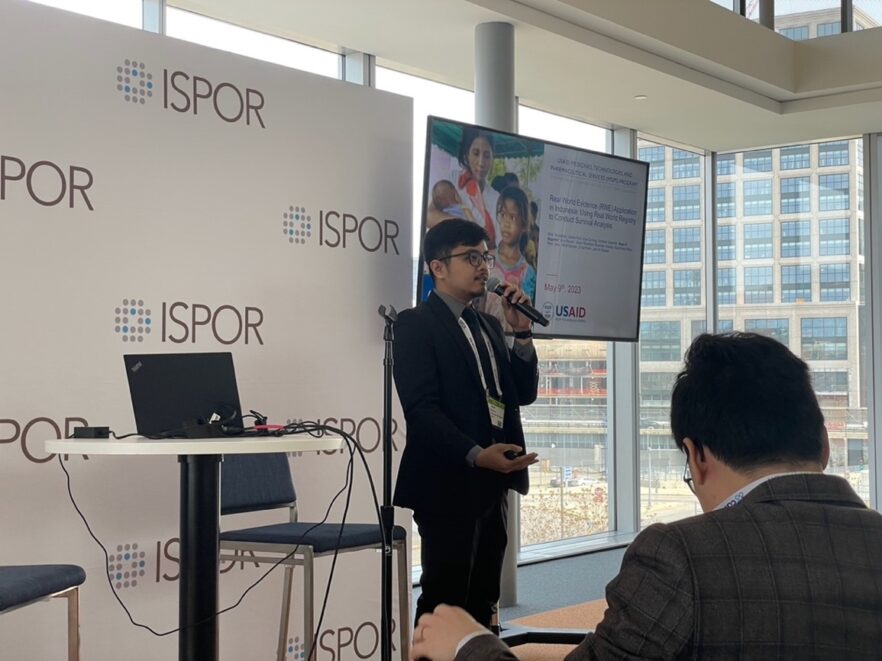Improving Public Health Decision-Making Using Real-World Evidence in Indonesia
Indonesia has been a leader in implementing health technology assessment (HTA)—a process for determining the value of a drug, vaccine, diagnostic test, medical procedure, or health-related device—to guide decisions about paying for drugs and medicines nationally. However, like other low- and middle-income countries (LMICs), Indonesia faces challenges in generating the data it needs to maintain high-quality evidence. To address this issue, the US Agency for International Development Medicines, Technologies, and Pharmaceutical Services (MTaPS) Program is committed to helping Indonesia achieve its health goals sustainably by harnessing the potential of real-world evidence (RWE) or insights gathered from real-world context-relevant implementation data.
At the 2023 annual conference of the International Society for Pharmacoeconomics and Outcomes Research (ISPOR) held in the US from May 7–10 in Boston, Mass., MTaPS shared its latest lessons learned from working with Indonesia’s stakeholders to leverage RWE for drug reimbursement and national-level decision-making on health financing. During a panel on oncology and rare disease case studies, MTaPS Technical Consultant Ryan Nugraha, MD, MPH, presented a case study titled “Using Real-World Evidence for Health Technology Assessment: Capacity Building of Parameter Calibration for Economic Evaluation of Trastuzumab Addition to Chemotherapy in Early Breast Cancer.” The panel was attended by 40 experts from government, academia, and industry who focused on health economics and outcomes research involving oncology and rare disease products.

Technical Consultant Dr. Ryan Nugraha, MPH, presenting MTaPS’ HTA work in Indonesia at the ISPOR conference. Photo credit: Dr. Christian Suharlim/MSH
Addressing the panel, MTaPS’ lead on pharmaceutical financing and resource allocation and use, Christian Suharlim, MD, MPH, stated, “Our work in Indonesia showed that by leveraging the limited data available in-country, LMICs can improve the quality of decision-making. This is a pivotal step for LMICs to utilize context-specific local data to make decisions.”
Building on the presentation, MTaPS is working on a paper highlighting the efforts, showcasing the program’s work on RWE in Indonesia, and laying the foundation for opportunities to collaborate with a wide range of experts and stakeholders. The program’s experience aims to enhance capacity to perform RWE analysis and interpretation in Indonesia and other LMICs. The paper will also serve as guidance for other countries, especially those still in the initial steps, on how to establish their RWE ecosystem.
MTaPS’ work on RWE in Indonesia has highlighted the potential for LMICs to improve the quality of decision-making by leveraging the limited data available in-country. By establishing a robust RWE ecosystem, LMICs can generate context-specific local data to make informed decisions on drug reimbursement and other health care interventions.